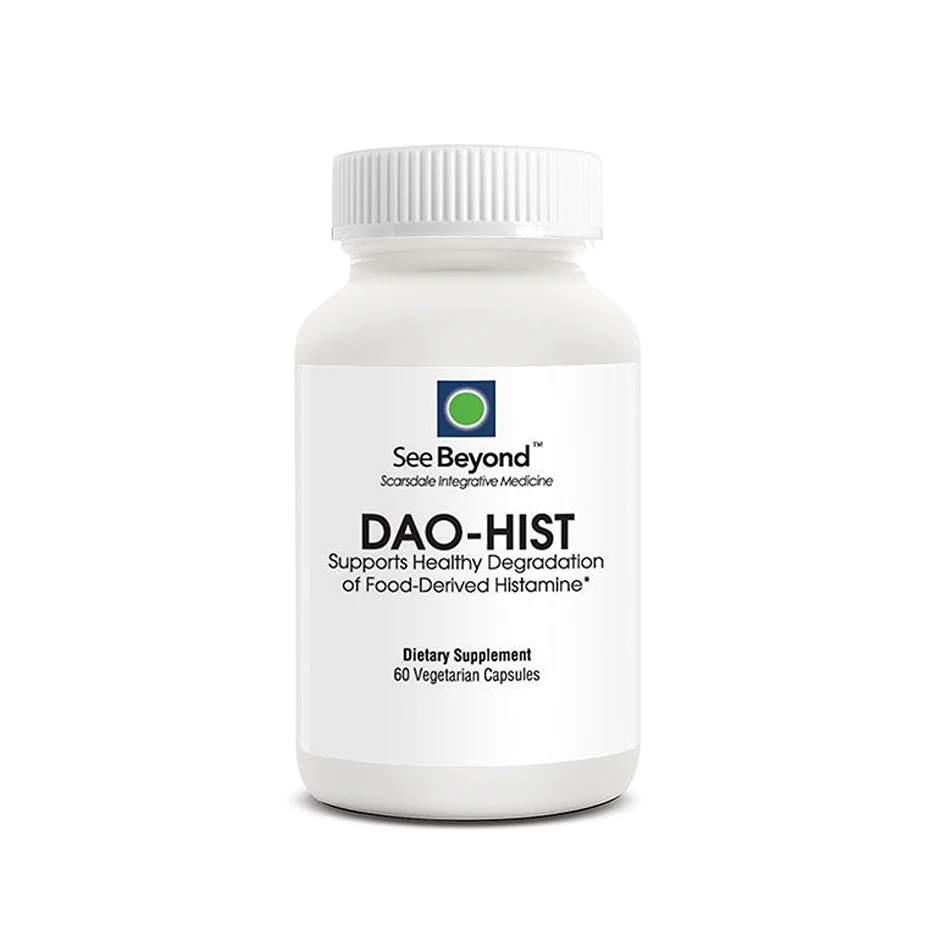Interplay of Enzymes, Histamine, and Immune Cells in Prostatic Diseases
For years, researchers have been searching for patterns in the human body that can help unravel why some men develop benign prostate issues while others see cancer take hold. One discovery has shone a light on an ordinary enzyme that may hold extraordinary power: diamine oxidase (DAO). DAO plays a role in cell growth regulation that we’re only beginning to understand.
This article explores the unexpectedly pivotal role of this humble enzyme and how learning more about its functions could point the way to improved treatments for some very common male health problems.
BPF and Prostatic Carcinoma: Overview
Benign prostatic hyperplasia (BPH) and prostatic carcinoma are two common conditions affecting the prostate gland. BPH involves the noncancerous enlargement of the prostate due to excessive cell growth. It mainly occurs in aging men and common symptoms include difficulties urinating and frequent urges.
Prostatic carcinoma refers to cancer formation in the prostate tissues. It is one of the most prevalent cancers among men worldwide. Early stage prostate cancer may be asymptomatic, while advanced cases can spread to other organs leading to complications.
Polyamine Metabolism in Prostatic Tissue
Polyamines like spermine, spermidine and putrescine are involved in crucial cellular functions regulating cell proliferation and growth. Their levels are modulated by the enzymes arginase and diamine oxidase (DAO) involved in polyamine metabolism.
Arginase produces ornithine, a precursor for polyamines, from arginine. DAO in turn breaks down excess polyamines. Previous studies suggest aberrant polyamine metabolism may contribute to the pathogenesis of various proliferative conditions including prostatic hyperplasia and carcinoma.
Given their roles in modulating cell growth, polyamines like spermine and spermidine are believed to have significance in prostatic tissue proliferation and disease development.
Role of Enzymes
Prostate tissue levels of polyamines are primarily regulated by the activities of two key enzymes – arginase and diamine oxidase. Arginase catalyzes the hydrolysis of arginine into ornithine and urea. Given arginine is a substrate for ornithine synthesis, upregulated arginase activity leads to increased levels of ornithine available for polyamine production.
On the other hand, diamine oxidase or DAO functions to break down excess polyamines through oxidative deamination. It catalyzes the oxidation of diamines like spermine and spermidine into the diamine putrescine as well as reactive oxygen species and hydrogen peroxide.
Higher DAO activity thus lowers the levels of active polyamines like spermine and spermidine by converting them into an inactive putrescine form. The oxidative deamination by DAO helps prevent excessive accumulation of polyamines that can lead to aberrant cell growth.
Relevant Study: Review
Title: Possible Implications of Arginase and Diamine Oxidase in Prostatic Carcinoma
The objective of this study was to evaluate and compare the levels of arginase and DAO enzymes in prostatic tissues from patients with benign prostatic hyperplasia (BPH) and prostatic carcinoma. Tissue samples were collected from 50 patients undergoing transurethral resection of the prostate for BPH and 23 patients undergoing radical prostatectomy for prostatic carcinoma.
Patient demographics included males with a mean age of 68 years for the BPH group and 62 years for the carcinoma group. Tissue homogenates prepared from the resected specimens were used to measure and compare the enzyme activities of arginase and DAO between the two cohorts.
Arginase activity was quantified by measuring the amount of urea produced while DAO activity was assessed based on the oxidation of cadaverine to its amino form. Statistical analysis was conducted to determine correlations between enzyme levels and disease status. The study thus evaluated whether these enzymes play a role in modulating polyamine levels and prostatic pathologies.
Key Findings
- The activities of both DAO and arginase were significantly higher in prostatic carcinoma tissue samples compared to BPH tissues.
- A strong inverse correlation was observed between the activities of DAO and arginase in the prostatic carcinoma patient group. Higher activity of one enzyme was associated with lower activity of the other.
- The Gleason grades, which indicate aggressiveness of prostatic carcinomas, were also found to correlate with the activities of both DAO and arginase enzymes in tumor specimens. Higher grades showed increased enzyme levels.
Effects of Histamine in Prostatic Diseases
Beyond polyamine metabolism, histamine levels are also believed to influence prostatic conditions. Histamine is a biogenic amine involved in various physiological processes through interaction with histamine H1-H4 receptors present on immune and duct cells in prostatic tissues. Elevated levels of histamine have been detected in prostatic carcinoma compared to normal prostatic tissue.
Effects on Cell Functions
Increased histamine release within tumor microenvironments can modulate numerous cell functions in the prostate. It impacts apoptotic pathways, cell proliferation, protein synthesis and secretion. The action of histamine is dependent on its concentrations – both excessive as well as deficient histamine have been shown to disrupt normal prostate functioning.
Action and Concentrations in Tumor Microenvironments
Precisely regulated histamine achieving an optimal level through feedback inhibition appears crucial for prostatic health. However, studies indicate solid tumors like prostate adenocarcinoma alter the tumor microenvironment to promote high extracellular histamine accumulations through reduced histamine catabolism involving copper amine oxidase and diamine oxidase enzymes. Such excess histamine may contribute to cancer development and progression by enhancing tumor cell survival, migration and immunosuppression.
Amine Oxidases and Their Significance

A key member of amine oxidases is diamine oxidase (DAO) which targets primary amines like histamine and polyamines for oxidative metabolism. DAO plays an important physiological role through regulation of polyamine and histamine levels.
DAO generates hydrogen peroxide and aldehydes as byproducts during amine oxidation, which can influence cell functions like proliferation, migration and adhesion. Dysregulated DAO expression has been linked to various diseases including cancers. For instance, studies show induction of breast cancer cell invasion upon DAO knockdown in mouse models.
Controlled regulation of DAO is also believed crucial for modulating tumor microenvironments post-therapy. Reduced DAO levels in residual cancer cells post-treatment allows increased extracellular amine accumulations like histamine which can promote tumor rebound.
Implications for Treatment and Future Research
Research shows that abnormal levels of the enzymes arginase and DAO affect polyamine levels in prostate tumors. Future studies could look at targeting these enzymes, like DAO, for prostate cancer immunotherapy. Restoring normal balances of DAO and polyamine metabolism may help slow uncontrolled cell growth.
Further analysis of DAO levels in cancer and normal tissue samples from many patients could provide more insight. Larger studies are still needed to confirm the results and see if they can help guide new therapies. Quantitative and protein studies of clinical samples may give deeper understanding of DAO expression differences.
The Rise of DAO Supplements in the Market
As research has highlighted the importance of DAO in various health conditions involving histamine and polyamine regulation, a market for DAO supplements has emerged. Various DAO enzyme extracts from transgenic bacteria or purified from plant and animal sources are now available as oral supplements.
Potential Benefits of DAO Supplements for Managing BPH
Supplemental DAO enzymes may help promote polyamine breakdown through oxidative deamination in the prostate. This could slow hyperplastic growth in BPH by limiting excessive polyamines like spermine and spermidine.
DAO supplements may also help reduce inflammation and create an unfavorable microenvironment for cancer progression by metabolizing excess histamine in prostate tumors. Optimal DAO activity through supplementation warrants further investigation.
Partnering with Experts for Guidance

As interest grows in DAO supplements, finding high-quality products is key. See Beyond Shop is a leading provider of DAO enzyme supplements backed by research. Our formulations aim to effectively support DAO function in the body.
Contact us today to learn more about the benefits of our DAO-HIST supplements and determine if supplementation is right for your needs. Better health through science – that’s our mission!
